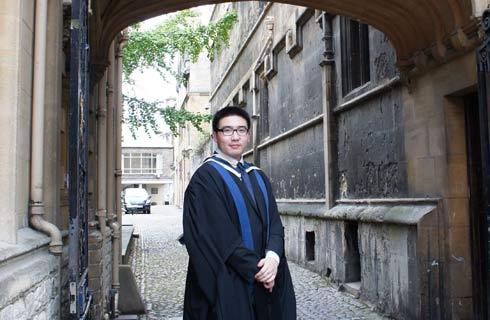法学士(荣誉)法与西班牙法
LLB (Hons) Law with Hispanic Law

学历文凭
Bachelor Degree with Honours

专业院系
School of Law

开学时间

课程时长

课程学费

国际学生入学条件
IDP—雅思考试联合主办方

雅思考试总分
- 雅思总分:
- 托福网考总分:
- 托福笔试总分:
- 其他语言考试:
CRICOS代码: MR13
申请截止日期: 请与IDP联系 以获取详细信息。
课程简介
This degree allows you to learn about how and why law is created and changed, and how it operates as a social institution. You will gain expertise in analysis, research, logical argument and more, as you develop an understanding of key topics within the legal sector. At the same time, you will develop your Spanish language skills and – through a third year studying law in Spain or a Spanish-speaking Latin American country – learn about a legal system that is very different to that of England and Wales. Through core and optional legal modules, you will examine the broader context of the law and its relationship with society. You can develop your interests in specialist legal areas including company law, employment law, human rights law, environmental law and family law. You could also explore topics in criminal justice and criminology, such as policing or youth crime. Throughout the course you will gain diverse skills that will be valuable to you as a global citizen, as well as in your professional career – whether you choose to enter the legal profession or not. The School has four world-leading research centres specialising in Business Law, Criminal Justice, Legal Education and Social Justice, with staff from those Centres teaching across a range of Undergraduate and Postgraduate programmes. You’ll have the opportunity to be taught by some of those staff and will also have the opportunity to apply to explore the practical application of law through our award-winning Community Engagement (pro bono) opportunities. If you want to qualify as a barrister, all our law courses satisfy the degree requirements set by the Bar Standards Board in England and Wales. You can visit the Bar Standards Board website for more information. If you want to become a solicitor in England and Wales, you will need to complete the Solicitors Qualifying Exam (SQE) and have two years of full-time equivalent work experience. The Solicitors Regulation Authority website provides more details. Although you will no longer require a law degree or a diploma in order to qualify as a solicitor, a law degree will be particularly effective in allowing you to gain the knowledge and skills required for SQE1 (the first stage of the SQE, set by the SRA).
相关申请
 预科
预科 奖学金
奖学金 实习机会
实习机会 在校学习
在校学习 跨境学习
跨境学习 校园授课-线上开始
校园授课-线上开始 在线/远程学习
在线/远程学习
开学时间&学费
学费信息仅供参考,请与IDP联系以获取详细信息
| 开学时间 | 时长 | 学费 | 地点 |
|---|
学校排名

世界排名153
数据源:
泰晤士高等教育世界大学排名
关于利兹大学

利兹大学在《2025 完整大学指南》中名列英国大学前25名,在2025 QS世界大学排名中名列世界前100名。它也是罗素大学集团大学之一,这是英国著名的顶尖研究密集型大学名单。该大学的学生满意度很高,在英国排名第三(2018年《泰晤士报高等教育学生体验调查》)。作为同一项调查的一部分,该大学的校园设施在英国排名第二,这是对学生发挥潜力的绝佳校园的认可。近年来,两栋新建筑投资超过1.2亿英镑。体育设施也被认为是世界级的。The Edge是一个为学生提供的令人难以置信的健身中心,包括一个25米的室内游泳池、攀岩墙和为不同体育活动设置的各种大厅。这是一所热情友好的大学,拥有充满活力、多样化的学生群体。事实上,来自世界130多个不同国家的13800多名国际学生在利兹大学学习。学生会是这个国家最活跃、最活跃的工会之一。学生可以加入300多个俱乐部和社团,利兹大学联盟(LUU)是英国第一个被全国学生联合会评为''优秀''的俱乐部和社团。
本校相关课程

生物多样性与保护
学历文凭
Masters Degree (Taught)
开学日期
课程费用总额


统计博士学位
学历文凭
Ph.D.
开学日期
课程费用总额


纯粹数学博士学位
学历文凭
Ph.D.
开学日期
课程费用总额


应用数学博士学位
学历文凭
Ph.D.
开学日期
课程费用总额


PhD in Geography
学历文凭
Ph.D.
开学日期
课程费用总额


PhD in Microwave and Millimetre Wave Engineering
学历文凭
Ph.D.
开学日期
课程费用总额

其他相关课程

政治与国际关系学士/法学学士
 堪培拉大学
堪培拉大学泰晤士高等教育世界大学排名:470
学历文凭
Dual Degree
开学日期
课程费用总额


信息技术科学学士学位
 悉尼科技大学
悉尼科技大学学历文凭
Dual Degree
开学日期
课程费用总额


理学学士/法学学士
 西悉尼大学
西悉尼大学泰晤士高等教育世界大学排名:352
学历文凭
Dual Degree
开学日期
课程费用总额


商法研究生证书
 阿德莱德大学
阿德莱德大学学历文凭
Graduate Certificate
开学日期
课程费用总额


商法研究生文凭
 阿德莱德大学
阿德莱德大学学历文凭
Graduate Diploma
开学日期
课程费用总额


比较法硕士(阿德莱德/曼海姆)
 阿德莱德大学
阿德莱德大学学历文凭
Masters Degree (Coursework)
开学日期
课程费用总额










 英国
英国